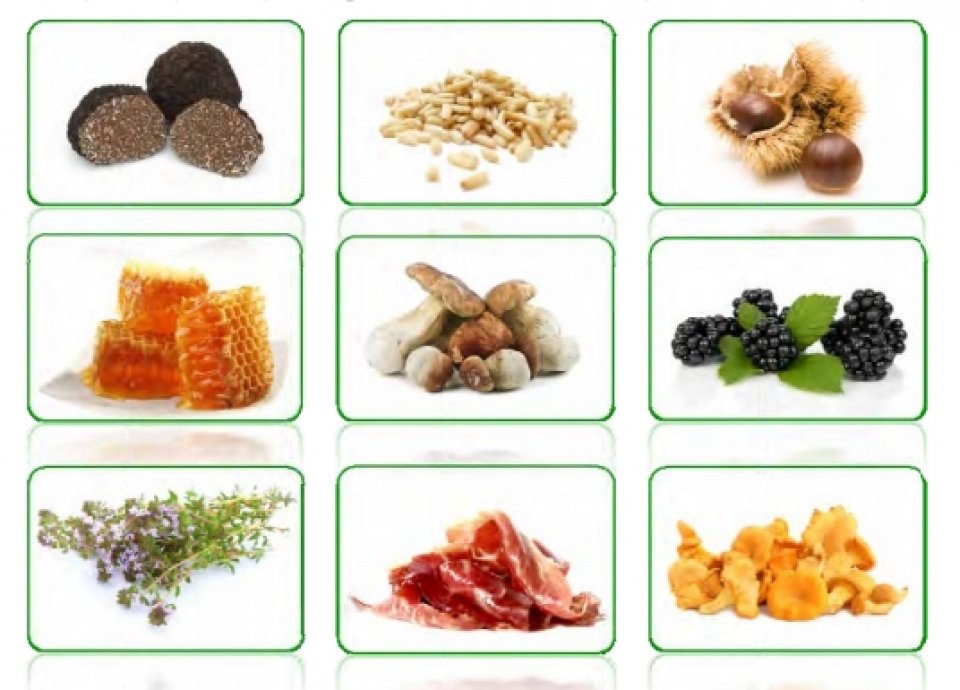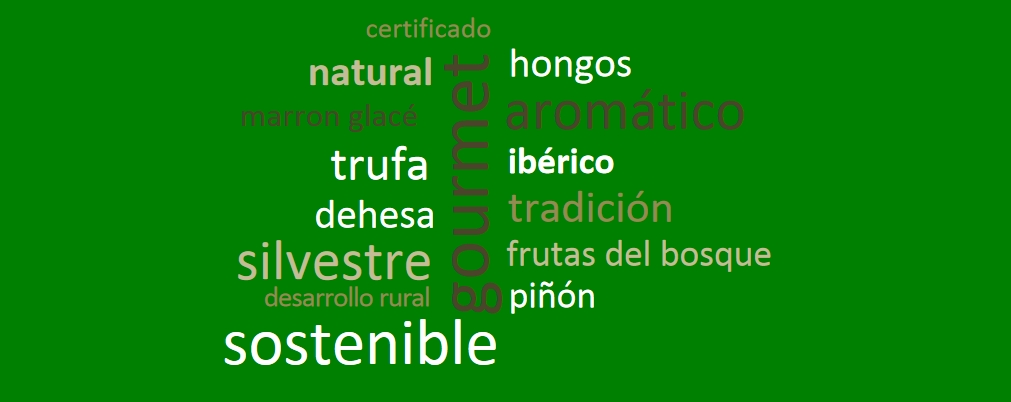
The best option for highly atomised sectors is to have a common positioning that brings together as many products as possible, by creating an umbrella brand that provides added value. PEFC Spain enables forest certification for wild products by means of grouping all producers and forest products managed under sustainability criteria under a recognized brand. This enhances an economic activities compatible with forest conservation and undertaken by thousands of people in Spanish rural areas.
The PEFC certification for wild food chains of custody (CoC) can help to improve the regulation of their use and commercialisation and the recognition of sectors that at present are still partly non-formal.
Forests have always provided food for human. Wild products allow us to enjoy authentic natural flavours. Mediterranean gourmet foods, such as mushrooms, truffles, pine nuts, chestnuts, berries, honey, aromatic plants, and even acorns for feeding Iberian pigs, are forest products often present in our kitchens.
Many agricultural products carry a certifation of origin, quality, and cultivation method on their label. However, wild products often lack this information. Hence, forest certification provides a guarantee of traceability from origin, and also endorses this origin as a sustainably managed forest (SFM).
In Spain, the first PEFC certificate in the agri-food sector was for cork stoppers in high quality wines used as a differentiating element, adding value and prestige to the product. The next was for one of the star products of our pantry: the Iberian ham. Today we can find ham and tenderloin from internationally renowned brands that guarantee the well-being of the pigs and the care of the land. The first truffles PEFC certified in chain of custody can be found in Ribagorza county. El Bierzo offers PEFC certified chestnuts through the Network of Sustainable Groves. The demand for certified honey is already a reality, this being one of the products expected to have certified origin and a label which confirms its traceability and the care of the forests in which it is produced.
PEFC makes forest certification accessible to forest owners and managers through regional or group certificates. More than 38,860 forest owners and managers are PEFC certified, attesting the responsible management of 2,300,000 ha in Spain.
Certification is a key tool to improve marketing, communicating both to the consumer and to society the commitment to forest conservation. Hence, chain of custody certification from the forest to the consumer is essential. Moreover, it constitutes a guarantee for the Spanish products versus imports from third countries. In order to structure the sector and improve competitiveness, a joint marketing strategy must be articulated under the same brand to increase the market penetration quota.
Greater promotion of wild products is needed and more companies must be certified in chain of custody, overcoming the various difficulties. For small businesses certification can mean an administrative burden and extra costs, while large processing companies may have greater difficulty in securely sourcing certified products. The main interest in the brand for big companies is a way of communicating to consumers their social and environmental commitment, so they would certify the Chain of Custody, but they require sufficient suppliers of certified wild products.
Certification of sustainable forest management is not compatible with the informal or 'underground' economy.
Certification of wild foods through the PEFC label may lead to society perceiving forests in a different way, through fashionable activities such as culinary arts. Recognition by the consumer must be a reward for the efforts of producers, collectors, processors, and retailers. The commitment of forest owners to the future of forests needs institutional, regulatory, and societal support to maintain biodiversity, fight climate change and ultimately preserve, through adaptive forestry, allthe assets and ecosystem services that forests provide to the planet.
Arantza Pérez Oleaga, ArantzaOleaga@pefc.es, PEFC España
Ana Belén Noriega Bravo, AnaNoriega@pefc.es, PEFC España
Further information
PEFC España

PEFC España
